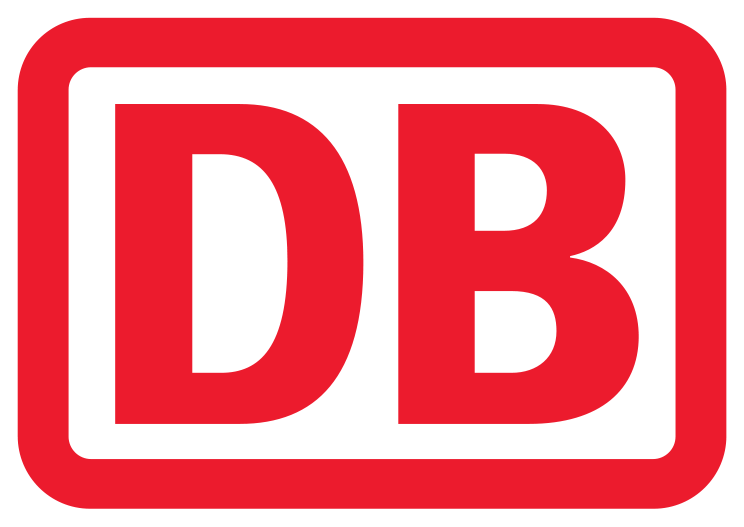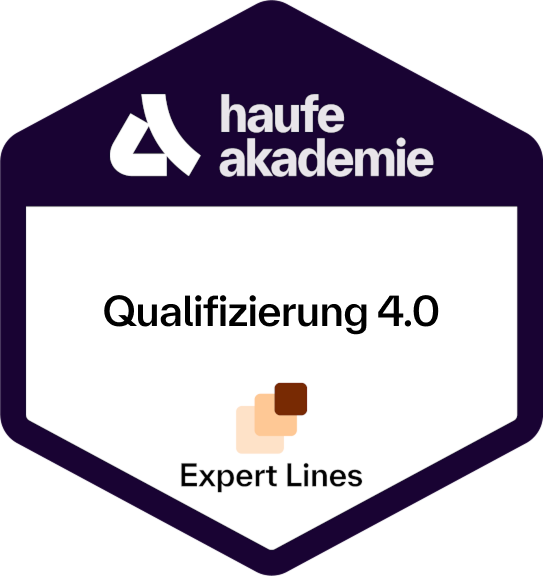Haufe Business Moderation Training
Successfully moderating meetings, workshops and events
- What is moderation?
- Structure and goal orientation in the concept.
- Basic tools of a moderator.
- Development of an open, appreciative culture of discussion.
- Design and prepare online meetings and workshops.
- Using professional moderation methods effectively online.
- Facilitate solution finding and coordination processes with common tool functions.
- Facilitate understanding and document results in a structured way with continuous visually supported communication.
- Involve the participants interactively, use their skills.
- Reflection on practical experience and supervision.
- Event moderation.
- Moderation of discussions.
- Reflection on practical experience and supervision.
- Moderation of heterogeneous groups with conflicting points of view.
- Feedback on your own impact as a moderator:in.
- Recognizing group processes and group dynamics.
- Strategies for "difficult situations".
- Moderation of conflicts.
- Examination and conclusion.
Contents
Contents
Module 1: Basics of workshop facilitation
What is moderation?
- Role and process responsibility of the moderators.
- Basic attitude of a moderator.
- Neutrality vs. self-interest.
Structure and goal orientation in the concept
- Preparation, clarification of requirements, objectives, "method selection", target group analysis, suitable concept for different groups, topics and shareholders.
- Prepare and follow up moderations.
- Structure of the process.
Basic tools for moderators
- Instruments for controlling conversations.
- Different methods of interaction, such as asking on call, asking on cards, brainstorming, 6-3-5, 2-field board.
- Questioning and feedback techniques.
- Methods of structuring, bundling and prioritizing content.
- Optical processing of information and visualization techniques.
- Designing topic and problem-solving processes.
Development of an open, appreciative culture of discussion
- Promote motivation, build up excitement, activate attendees .
- Action plan: Work out tasks, define responsibilities.
Targeted exercises and practical simulations
Introduction and basic principles for Module 2 "Facilitating online meetings and workshops"
- Transfer task for module 2
Module 2: Moderating online meetings and workshops
- Design and prepare online meetings and workshops.
- Using professional moderation methods effectively online.
- Facilitate solution finding and coordination processes with common tool functions.
- Filling the role of moderator with confidence.
- Involve the participants interactively, use their skills.
Targeted exercises and practical simulations
Module 3: Moderation of meetings, discussions and events
Reflection on practical experience and supervision
Event moderation
- Basics and differences to workshop moderation.
- Differentiated and various roles of the moderator.
- The ideal briefing - what information do I need?
- Moderation concept and preparation of an event moderation.
- Moderation cards as guidelines.
- Moderation techniques at events.
Moderation of discussions
- Basics and differences to workshop moderation.
- Role of:the:moderator:in.
- Moderation and discussion management.
- Exciting interviews and skillful interruption.
- Elegant thematic transitions.
Targeted exercises and practical simulations
- Transfer task for module 4
Module 4: Moderation of difficult situations
Reflection on practical experience and supervision
Moderation of heterogeneous groups with conflicting points of view
The confident appearance
- Free speaking in front of an audience.
- Establish and maintain contact with the participants/audience.
- Inner attitude and effect.
- Confident body language.
- Voice, facial expressions and gestures.
- Working with video feedback.
Feedback on your own impact as a moderator
- Specific tips for improving your own moderation.
Recognizing group processes and group dynamics
- Different phases of a group.
- TCI triangle as a helpful model.
- Dealing with "disturbances".
Difficult situations
- Change curve - why people find it difficult to deal positively with change.
- Collection of difficult situations, "stressful participants", typical objections or killer phrases and the appropriate interventions and tools for them.
Moderation of conflicts
- Clear and binding intervention techniques.
- The benefits of good preparation and appropriate rules of the game.
Targeted exercises and practical simulations
Practical examination and graduation
- Feedback on your own impact in the moderation role.
- Feedback on the methodical approach.
- Specific tips for improving your own moderation.
Learning environment
In your online learning environment, you will find useful information, downloads and extra services for this training course once you have registered.
Your benefit
- You will learn the individual building blocks of the moderation method and how to apply them.
- You can prepare, conduct and follow up moderations professionally.
- You can recognize difficult situations in moderations and handle them professionally.
- You have mastered techniques for designing and optimizing idea generation and decision-making processes in and with groups.
- You can manage group processes in workshops or meetings in a goal- and results-oriented manner.
- You can moderate discussions and events in a goal-oriented manner.
Methods
Expert input, instructional discussions, live online training, simulations, individual and group work, assignments, video feedback and practical exam.
Recommended for
Specialists and managers, trainers, moderators, consultants and anyone who (would like to) moderate meetings, discussions, workshops or events in a business context.
Further recommendations for "Haufe Business Moderation Training"
3 questions for former participants
How has your day-to-day work changed as a result of the business moderation training?
-
The training has given me much greater confidence; not only in large events, but also in smaller meetings and calls.
Were your expectations of the business moderation training fulfilled?
-
My expectations of the training were completely fulfilled: the fact that we were able to learn from two different trainers was also a big plus.
Can you recommend the business moderation training to others?
-
Yes, I can definitely recommend the training; and not only if you are already an established professional, but also for newcomers. This can establish a much better meeting culture.
Tanja Rühl
How has your day-to-day work changed as a result of the business moderation training?
-
The training gave me a wide variety of methods for moderation in all situations. As a result, I was able to respond to all needs in workshops and panel moderation with both large and small groups in a much more targeted and sometimes more spontaneous way, both in preparation and in implementation and follow-up. Overall, the training has enabled me to conduct moderations much more professionally. As I am always dealing with large groups of customers within communities, this is particularly important for my day-to-day work.
Was there a particular highlight during your training?
-
I particularly liked the practical training and practicing together with other attendees in the group, who all have similar challenges in their day-to-day work. The trainers were also very responsive to the needs of the group and each individual participant.
Were your expectations of the business moderation training fulfilled?
-
My expectations of the business moderation training were definitely met, especially as we took a lot of time for each individual module and as the modules are very practically oriented.
Paul Kogelheide, Community Expert
Start dates and details









FAQ on Haufe Business Moderation Training
Of course, we will then try to find a solution together so that you can still complete your training.
We work in small groups of up to 11 participants.
Yes, you have the opportunity to contact the trainers. In addition, the participants usually set up a self-directed communication network among themselves via the usual communication channels.
Yes, the practical exam relates to the final project. It consists of a simulated, 30-minute sequence of your independently developed concept.
The examination consists of a written and an oral part. The written part of the examination consists of the conception of a 2-3 hour workshop according to the moderation plan model (time/duration/objective/content/method/media/social form). This should be structured in such a way that it is comprehensible to another moderator/examiner. The written concept must be submitted at least two weeks before the oral part of the examination.
The oral part of the examination consists of the moderation of a sequence from the workshop concept. The moderation methods discussed in the training should be applied. The moderation sequence should last approx. 20-30 minutes, with the other training participants being the workshop participants. After the sequence, the "examinee" receives feedback from the other participants and from the examiner, including on the written plan.
The training is suitable for anyone who wants to develop or improve their skills in moderating workshops as well as events and panel discussions.
No, this training is also absolutely suitable for interested parties who have little or no moderation experience. The heterogeneous composition of the previous groups and the different levels of experience of the participants are an enrichment for the entire group. Learning from each other is the focus of the training and every can contribute their own ideas, regardless of whether you are a newcomer or an experienced facilitator who wants to professionalize their skills.
As large as didactically sensible and possible.
 4.9
4.9






